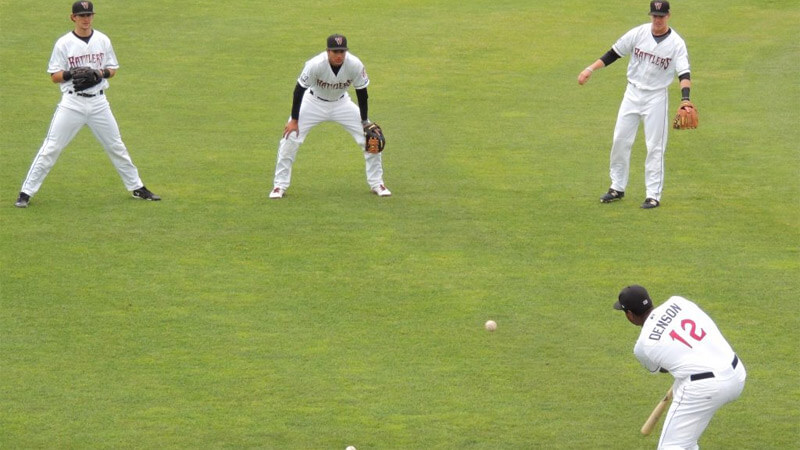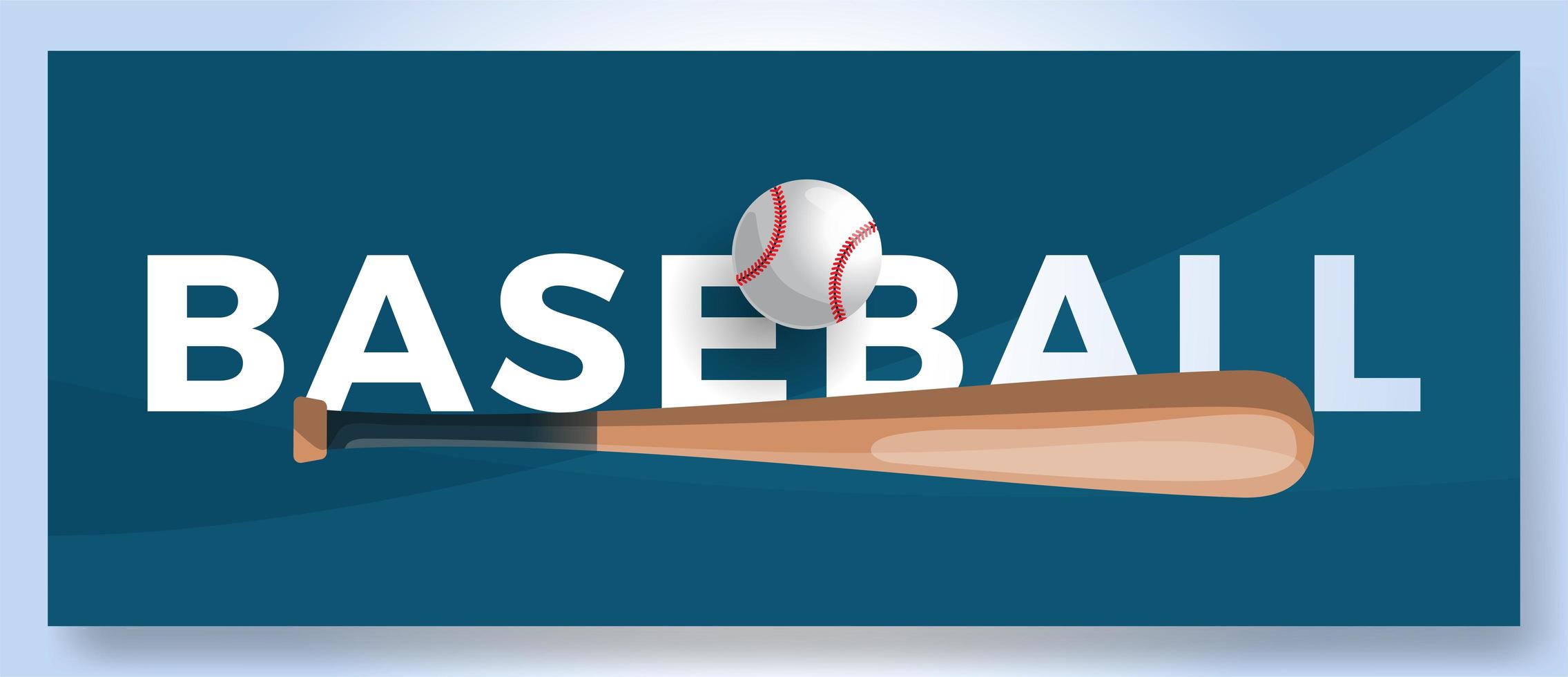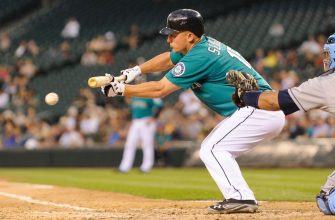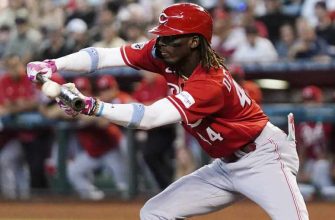Baseball players have been honing their fielding abilities and hand-eye coordination with the help of the traditional drill known as “Pepper” for more than a century. Despite its long-standing tradition, the game of Pepper is not as well-known as other aspects of baseball. The goal of this page is to shed light on this fascinating chapter in baseball history and its significance to today’s game.
The Basics of Pepper
Pepper is a simple game involving a group of players, usually four to six, standing about 20 feet away from a batter. The batter hits the ball tossed to him by one of the fielders, aiming to hit it softly back towards the group. The fielders attempt to catch the ball and throw it back to the batter, repeating the process. Because the ball is frequently hit in quick succession, the game is fast-paced and demands quick reflexes.
Rules and Variations of Pepper
The basic rules of Pepper are straightforward, but variations of the game can add complexity and challenge. In some versions, if a fielder makes an error, they switch places with the batter. In others, the batter may aim to hit the ball to specific fielders in a certain order. These variations can help players focus on different skills and keep the game fresh and engaging.
Origins and History of Pepper
Although its original origins are unknown, baseball players used Pepper as a common warm-up practice in the early 20th century. It was commonly played by Major League Baseball (MLB) players before games to sharpen their fielding skills and warm up their muscles. However, because to worries about player safety and the damage the game does to the field, it has gradually becoming less popular in professional settings.
Historical Examples and Controversies
Numerous baseball greats, such as Babe Ruth and Joe DiMaggio, loved the game “Pepper.” However, by the mid-20th century, some MLB teams began to ban Pepper games before matches, citing concerns about player injuries and damage to the grass. As a result, professional baseball saw a drop in the game’s popularity, which is still happening today.
Benefits of Playing Pepper

Despite its decline in professional baseball, Pepper remains a valuable training tool for many reasons:
- Improves Hand-Eye Coordination: The fast-paced nature of Pepper helps players improve their hand-eye coordination, a crucial skill in baseball.
- Enhances Fielding Skills: Regularly playing Pepper can help players enhance their fielding skills, including catching, throwing, and ground ball handling.
- Develops Quick Reflexes: The game requires players to react quickly to the ball, helping to develop faster reflexes.
- Promotes Teamwork: Pepper is a cooperative game that encourages communication and teamwork among players.
Pepper in Modern Baseball
While Pepper is less commonly seen in the professional leagues today, it is still played in various settings. Some MLB teams have been known to play Pepper as part of their training regimen, and it is also popular in youth leagues and casual play. Despite its decline in the professional scene, Pepper continues to be a beloved part of baseball culture.
Testimonials and Modern Usage
Many players, both amateur and professional, attest to the benefits of Pepper. For instance, Joe Smith, a former MLB player, once said, “Playing Pepper regularly as a kid significantly improved my fielding skills and reaction time. It’s a fun and effective way to train.” Today, you can often see Pepper being played in schoolyards, local baseball clubs, and even some progressive MLB training camps that value traditional training methods.
Visual Aids and Comparisons
There are several internet resources that explain how to play Pepper step-by-step, including instructional videos and diagrams, for anyone who are interested in learning the game. When compared to other baseball drills, Pepper stands out for its simplicity, versatility, and focus on rapid, repetitive fielding practice. While batting cages, pitching machines, and other modern training tools have their place, Pepper offers a unique, time-tested approach to improving fundamental baseball skills.
Frequently Asked Questions
What is Pepper in Baseball?
Pepper is a traditional baseball drill used to improve fielding skills and hand-eye coordination. It involves a group of players standing about 20 feet away from a batter. The batter hits the ball tossed to him by one of the fielders, aiming to hit it softly back towards the group. The sequence is quickly repeated as the fielders try to catch the ball and throw it back to the hitter.
Why is it Called Pepper in Baseball?
The origin of the name “Pepper” for this baseball drill is not definitively known. However, one theory suggests that the name comes from the “peppering” of the ball back and forth between the batter and the fielders, similar to the way pepper is sprinkled or spread out.
Why Do Baseball Fields Say No Pepper?
Some baseball fields have signs saying “No Pepper” due to concerns about player safety and potential damage to the field. The game of Pepper involves rapid, close-range hitting and fielding, which can lead to injuries if not properly managed. Additionally, the repeated hitting and fielding in the same area can wear down the grass on the field over time.
What Does “Pepper Games” Mean?
“Pepper games” refers to playing the game of Pepper in baseball. It’s a term used to describe the practice of this specific drill. Pepper games are frequently employed in practice sessions to enhance players’ quick reflexes, hand-eye coordination, and fielding abilities.
Conclusion
Pepper is a significant part of baseball history and not just a game. Even in the present era of the sport, it remains a useful training tool due to its simplicity and efficacy. Whether it’s improving hand-eye coordination, enhancing fielding skills, or promoting teamwork, Pepper has a lot to offer to players of all levels. Baseball’s effect on Pepper remains, even though it may not be as significant as it once was. This game serves as a reminder of baseball’s lengthy history and enduring talents.








